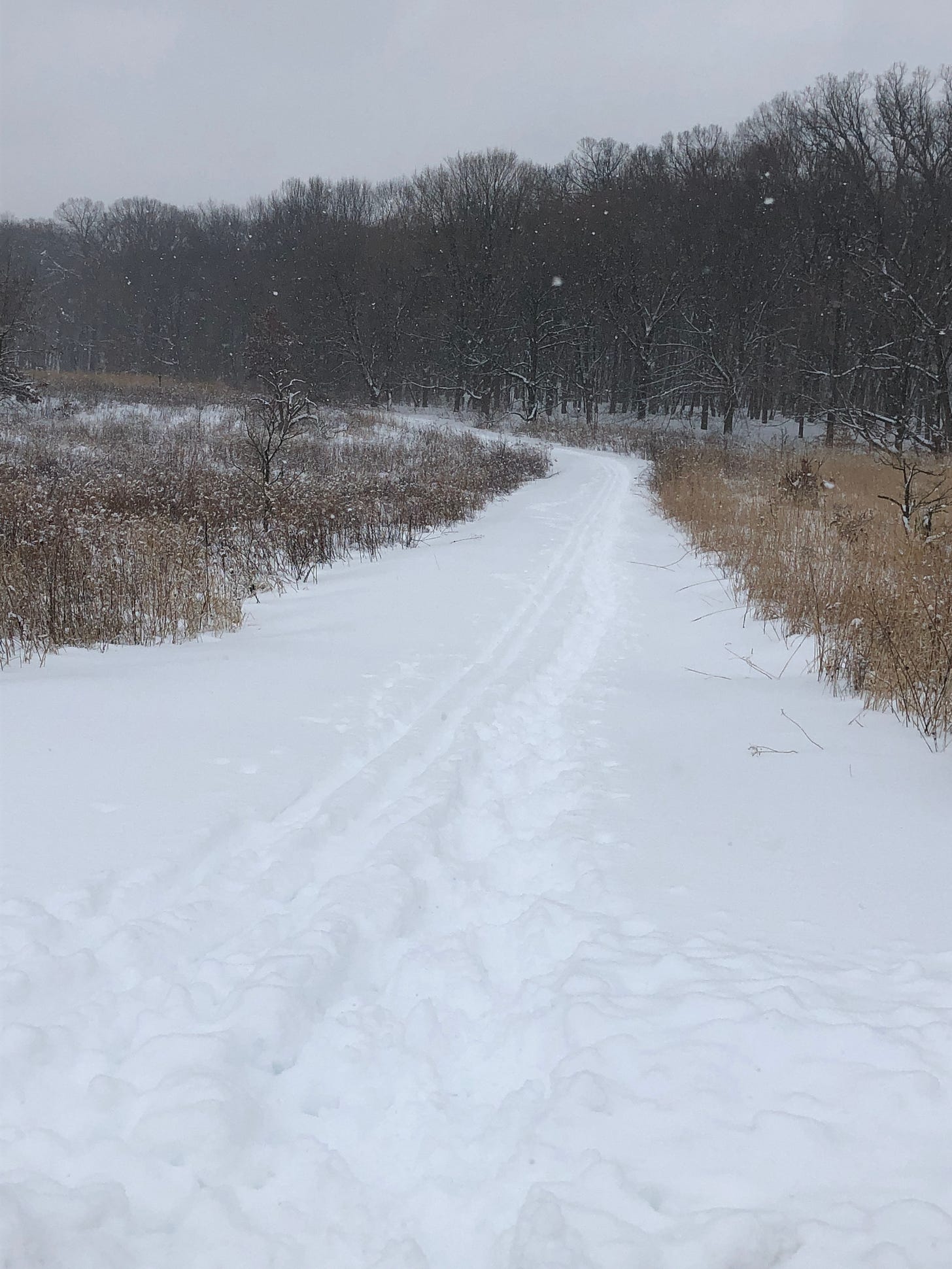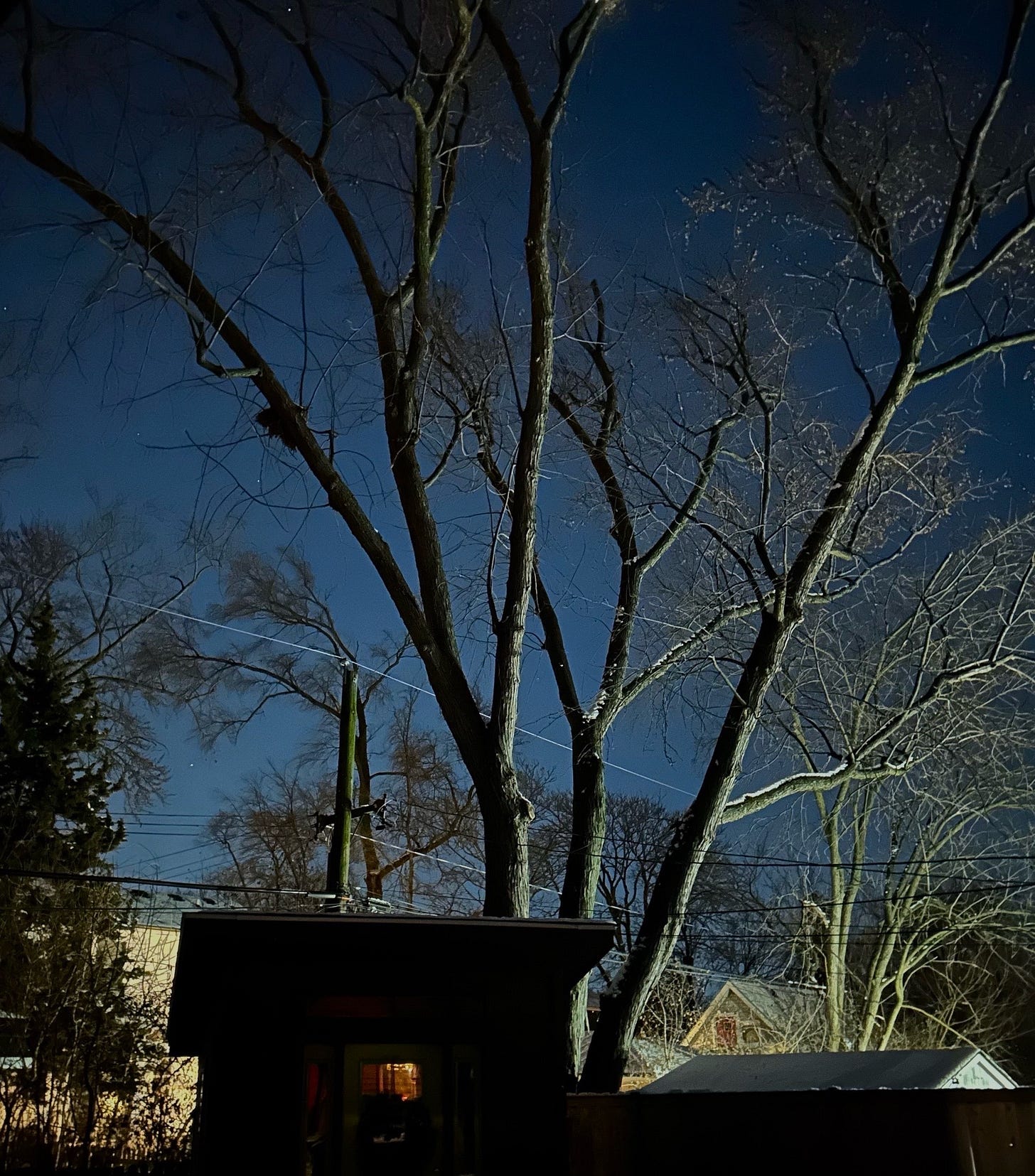Wintering
Learning from the hibernating soul
I watch the heavens on a cold, cold night. The air is crystallized like freezer burn on a too-long-in-the-refrigerator tub of ice cream. There are sparkles against the bible black sky, to borrow a line from Dylan Thomas, and the moon hangs like a jewel, its diamond whiteness like that of a holy man’s robe.
This is winter. And I am wintering.
The poet Ranier Maria Rilke was to have favored winter for being the time of year to nurture the “garden.” Not the one along a home’s walkway, but the one in the heart, allowing healing to take place. “My mind and spirit . . . was given the time and space in which to go on growing.”
Winter is that time for me.
In Henry David Thoreau’s essay, “A Winter Walk,” he seemingly promotes winter’s purpose. “In winter we lead a more inward life. Our hearts are warm and cheery, like cottages under drifts, whose windows and doors are half concealed, but from whose chimneys the smoke cheerfully ascends.”
But the act of wintering, for some, has taken on a different meaning.
Author Katherine May in her wonderful book Wintering: The Power of Rest and Retreat in Troubling Times describes the act of wintering as coming to terms with a season when life turns bitter through a loss or a struggle and we discover ourselves living differently—slower, more deliberately—searching for a warm resurrection when the world turns darker and the air we breath is ice. When life around us is hibernating, we are wintering, still in touch with the world but through a measured, steady process of renewal.
Winter is traditionally a metaphor for the end of something, despair, lifelessness, melancholy, even death. Being “snowed in” describes being trapped. Being “snowed” means we are overwhelmed with work. Winter gets a bad name. It’s cold. It’s colorless. It’s dark. Yet. I have come to see it as the dark before the dawn. Because in darkness, in the blackest black, the smallest of light is more evident than in the brightness of summer.
And so I come again to Thoreau.
In one of his diaries he wrote, “Take long walks in stormy weather or through deep snows in the fields and woods, if you would keep your spirits up. Deal with brute nature. Be cold and hungry and weary.” This is Thoreau’s light in the darkness of winter. He knows the season is a yoke on our shoulders, but through carrying the weight of the season we find winter’s purpose—to allow us to go on quietly growing before we sprout again in spring.
The winter sky is dramatic. The world is at its clearest. Winter sharpens our vision, our senses, and whether we are wintering to find solace, wintering to survive our own demons, or discovering comfort in the knowledge that the tulips under the snow are priming to emerge, we have to believe that what the poets have called the “season of sleep” will awaken us anew in spring.
A Poem for Winter
David W. Berner is the author of several books of award-winning fiction and memoir. His latest, Daylight Saving Time: The power of growing older is available now. His debut poetry collection, Garden Tools is due out in October, 2025 from Finishing Line Press. His novella, American Moon will be published by Regal House Publishing in 2026.






You've captured it in words (and photos) beautifully!
Wintering…a word now poking at memories buried deep beneath years of powdery time. Very evocative word, David. Like it. 🤔